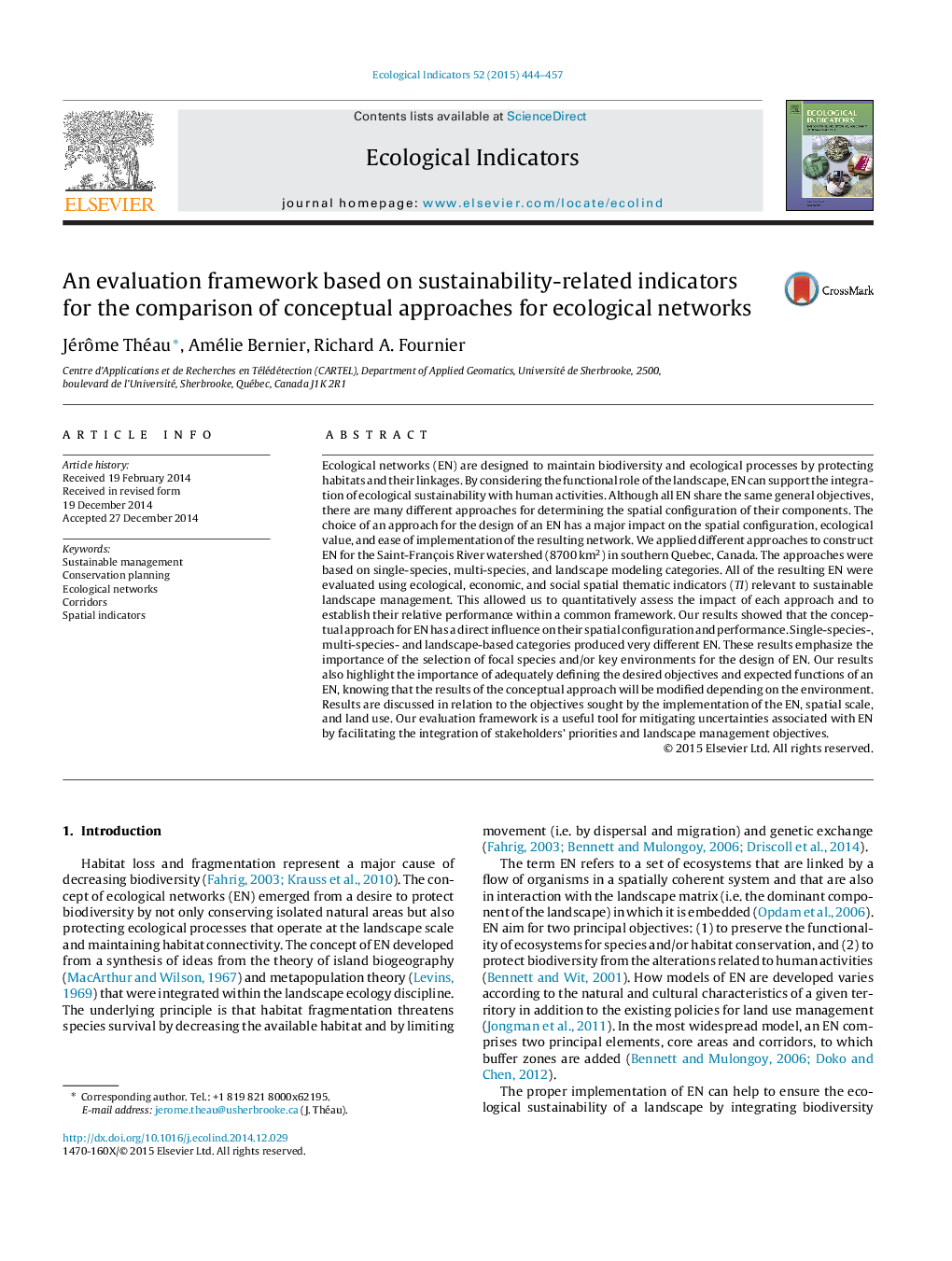| کد مقاله | کد نشریه | سال انتشار | مقاله انگلیسی | نسخه تمام متن |
|---|---|---|---|---|
| 6294588 | 1617149 | 2015 | 14 صفحه PDF | دانلود رایگان |
عنوان انگلیسی مقاله ISI
An evaluation framework based on sustainability-related indicators for the comparison of conceptual approaches for ecological networks
ترجمه فارسی عنوان
یک چارچوب ارزیابی مبتنی بر شاخص های مربوط به پایداری برای مقایسه رویکردهای مفهومی شبکه های اکولوژیک
دانلود مقاله + سفارش ترجمه
دانلود مقاله ISI انگلیسی
رایگان برای ایرانیان
کلمات کلیدی
مدیریت پایدار، برنامه ریزی حفاظت، شبکه های زیست محیطی، راهروها، شاخص های فضایی،
موضوعات مرتبط
علوم زیستی و بیوفناوری
علوم کشاورزی و بیولوژیک
بوم شناسی، تکامل، رفتار و سامانه شناسی
چکیده انگلیسی
Ecological networks (EN) are designed to maintain biodiversity and ecological processes by protecting habitats and their linkages. By considering the functional role of the landscape, EN can support the integration of ecological sustainability with human activities. Although all EN share the same general objectives, there are many different approaches for determining the spatial configuration of their components. The choice of an approach for the design of an EN has a major impact on the spatial configuration, ecological value, and ease of implementation of the resulting network. We applied different approaches to construct EN for the Saint-François River watershed (8700Â km2) in southern Quebec, Canada. The approaches were based on single-species, multi-species, and landscape modeling categories. All of the resulting EN were evaluated using ecological, economic, and social spatial thematic indicators (TI) relevant to sustainable landscape management. This allowed us to quantitatively assess the impact of each approach and to establish their relative performance within a common framework. Our results showed that the conceptual approach for EN has a direct influence on their spatial configuration and performance. Single-species-, multi-species- and landscape-based categories produced very different EN. These results emphasize the importance of the selection of focal species and/or key environments for the design of EN. Our results also highlight the importance of adequately defining the desired objectives and expected functions of an EN, knowing that the results of the conceptual approach will be modified depending on the environment. Results are discussed in relation to the objectives sought by the implementation of the EN, spatial scale, and land use. Our evaluation framework is a useful tool for mitigating uncertainties associated with EN by facilitating the integration of stakeholders' priorities and landscape management objectives.
ناشر
Database: Elsevier - ScienceDirect (ساینس دایرکت)
Journal: Ecological Indicators - Volume 52, May 2015, Pages 444-457
Journal: Ecological Indicators - Volume 52, May 2015, Pages 444-457
نویسندگان
Jérôme Théau, Amélie Bernier, Richard A. Fournier,
